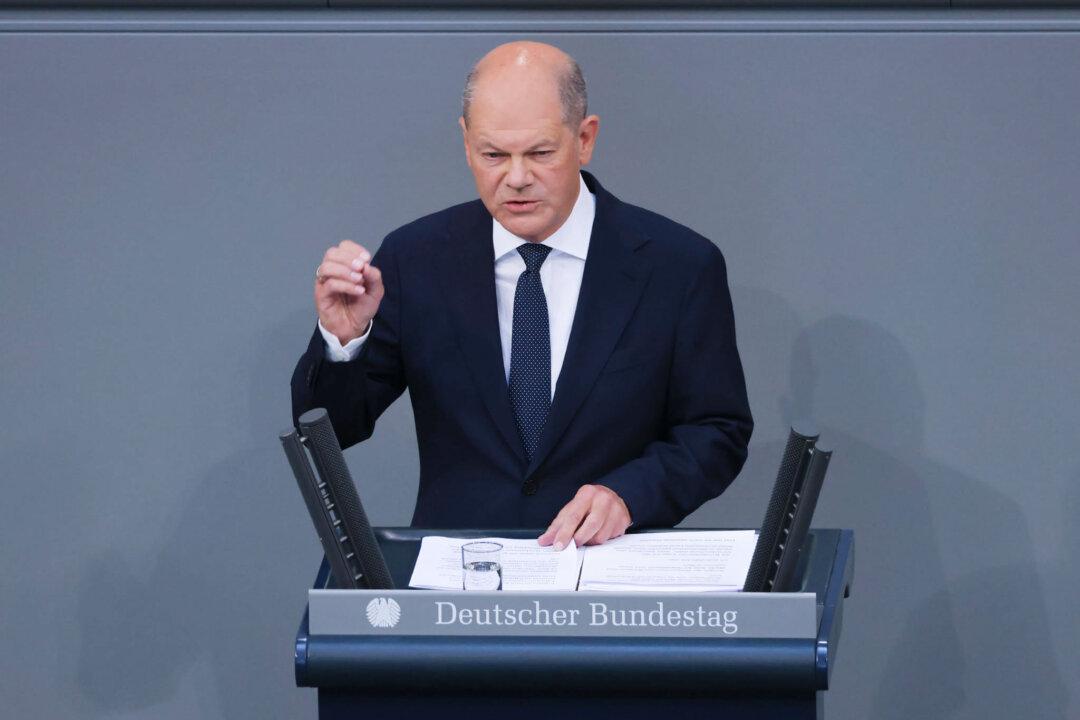German Chancellor Olaf Scholz said on Sept. 14 that Germany will not supply long-range precision weapons to Ukraine, regardless of NATO allies’ decisions.
Scholz made the remark during a public event in Prenzlau, a city in Germany’s eastern state of Brandenburg, with the German leader citing a major escalation risk, according to the German Press Agency.





